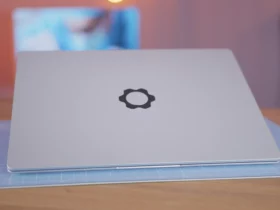The US anti-abortion legal system has won and the US is now chained in the horror of a digital tracking system that potentially takes on Orwellian hues. Between advice on how to hide one’s Internet existence and lists on how to avoid software that is dangerous for one’s privacy, the Net comes to the rescue of all women who want to protect their right of choice.
The anti-abortion current and digital tracking
Already in recent weeks, activists, technology experts and pro-choice associations were running for cover by reporting the many criticalities of digitized systems, however until the last it was hoped that the country that considers itself the main exporter of democracy in the world would not cancel the right to abortion. Hopes were dashed when the Supreme Court overturned the historic Roe v. Wade, delegating the decision of make termination of pregnancy illegal or not.
Bad news for all the women living in those 20 US states – almost all belonging to the so-called “rural America” - that have taken steps or are taking steps to criminalize abortion practices. In addition to the legitimate concerns of the case, the parties involved now fear a real witch hunt 4.0, or that the anti-abortion government system may exploit digitization to intercept the most vulnerable towns.
The fake clinics that collect information
The US is certainly not famous for its privacy protections – indeed it has made surveillance a real stylistic code – however Americans are at least protected by some rules that virtually limit Washington’s ability to snoop into the private lives of voters. One of the sectors in which the Government cannot collect personal data is the medical one, a protection that would guarantee those who refer to a clinic the certainty of having some defense in anonymity.
In fact, the situation is much more complex. In areas hostile to termination of pregnancy, medical clinics are almost non-existent. Rather, the only point of reference are information centers which often link themselves to religious institutions and which do everything to ensure that potential mothers are conditioned to carry out the gestation. While casting a veil on the controversial methods used to pursue this goal, an underlying problem persists: these centers collect the data of the people who refer to them, but since they are not medical institutions, the data in question can then be freely intercepted by the local government.
Apps and the Net are part of espionage
If digital tracking were confined to these poles, the situation would already be serious, however a woman cannot be safe from anti-abortion justicialism even by locking herself in the house. The various administrations can in fact exploit as incriminating evidence in court cases all that is not strictly medical: Google searches, Amazon purchases, menstrual calendar apps, PayPal payments. Or, assuming an even bleaker future, these elements could be implemented in predictive police systems, a somewhat problematic technology that the US authorities do not have too much trouble using anyway.
Social media represent a further pitfall. The Markup research group has already noted that, in defiance of Facebook’s policies, the tracking tool known as Meta Pixel do not face any problem keeping track of the information posted on the websites of the many “gestational crisis centers” on which it is present. More than 10% of the portals analyzed share information with the social network and at least 39 of these reported sensitive information to Big Tech such as personal details of their guests, e-mail addresses, telephone numbers and scheduling of scheduled appointments. Needless to say, the government can freely draw from social networks.
![]()
Escape from Big Brother
From this point on, American women must therefore start living their abortion in the shadows, leaving no digital traces. Activists and computer scientists suggest discussing the topic with an extremely small number of trusted subjects and mostly using encrypted messaging programs such as Signal. It is therefore advisable to give up wearable computerized objects that are able to monitor the state of health – that is no more smart watches -, protect every device with password systems and make sure to delete biometric authentication systems, so that investigators cannot possibly use facial tracking or fingerprints to access phones and computers.
For navigation it is better to use browsers such as Safari, Firefox or Brave, as well as carry out your own searches on DuckDuckGo. Better to make use of VPN, if not even Tor, and forgo GPS tracking. Not only that, to make sure that the connection to the Internet is not incriminating, it is advisable to leave your smartphone at home when visiting clinics and counseling centers. In other words, a woman who does not want to end a pregnancy will now be criminalized in different parts of the USA and she will therefore have to adopt the same precautions used by common criminals, living in paranoia and with the anguish of being hunted down.














Leave a Reply
View Comments